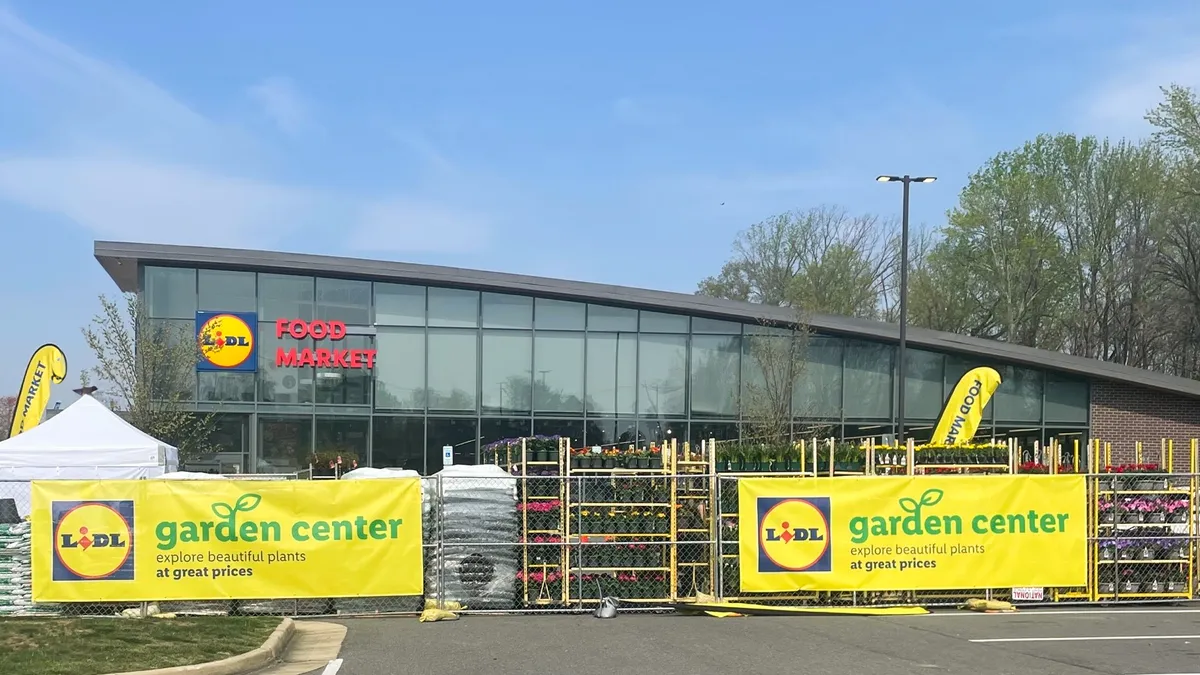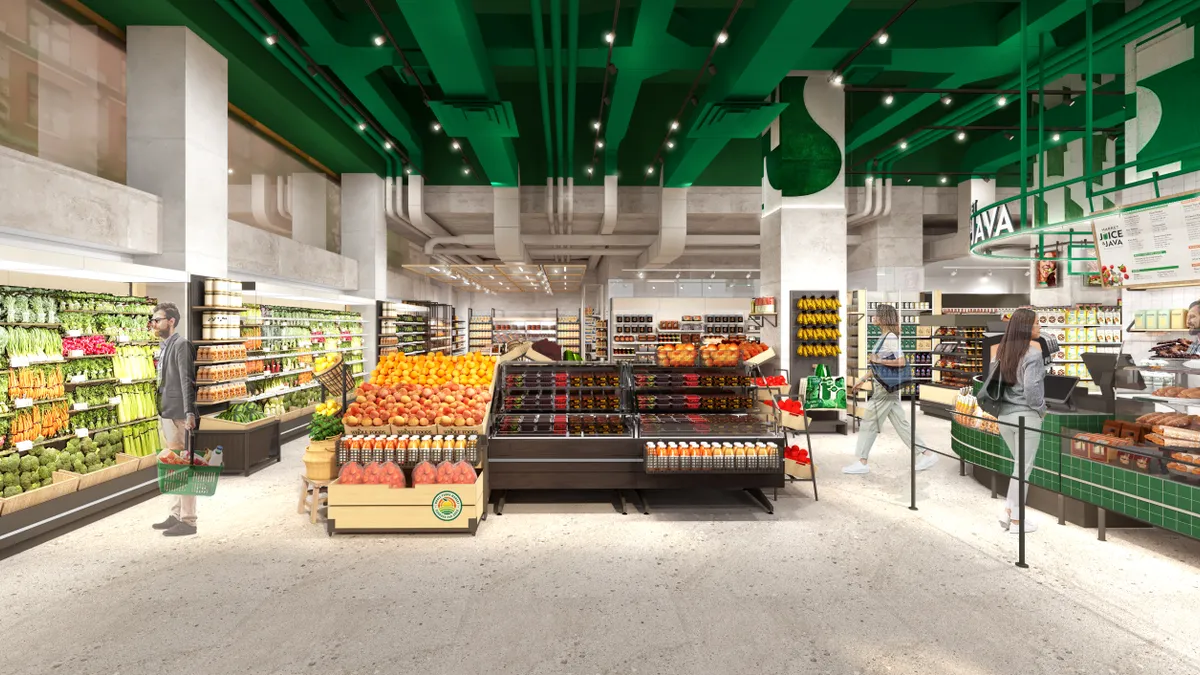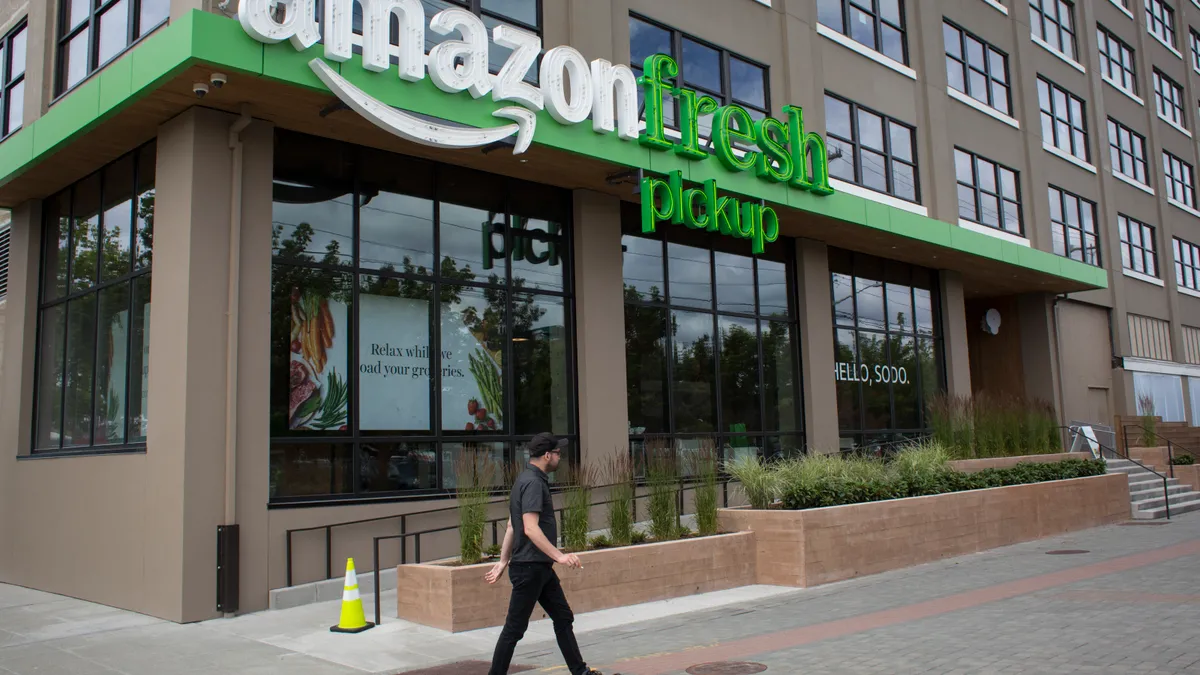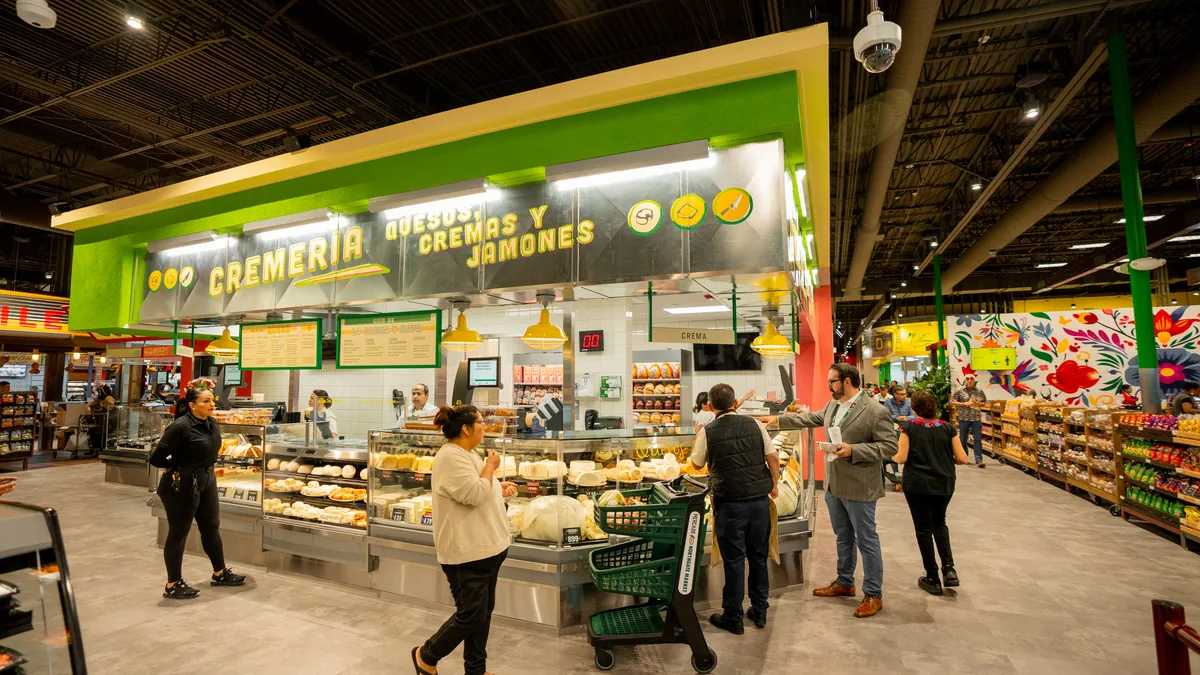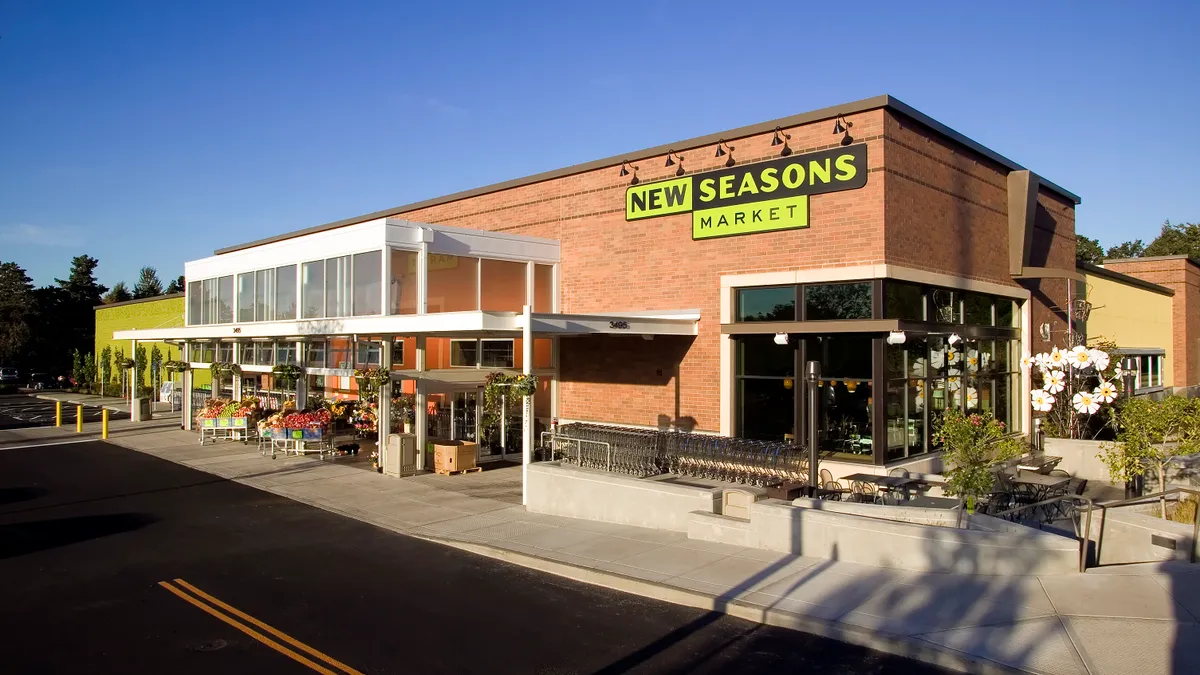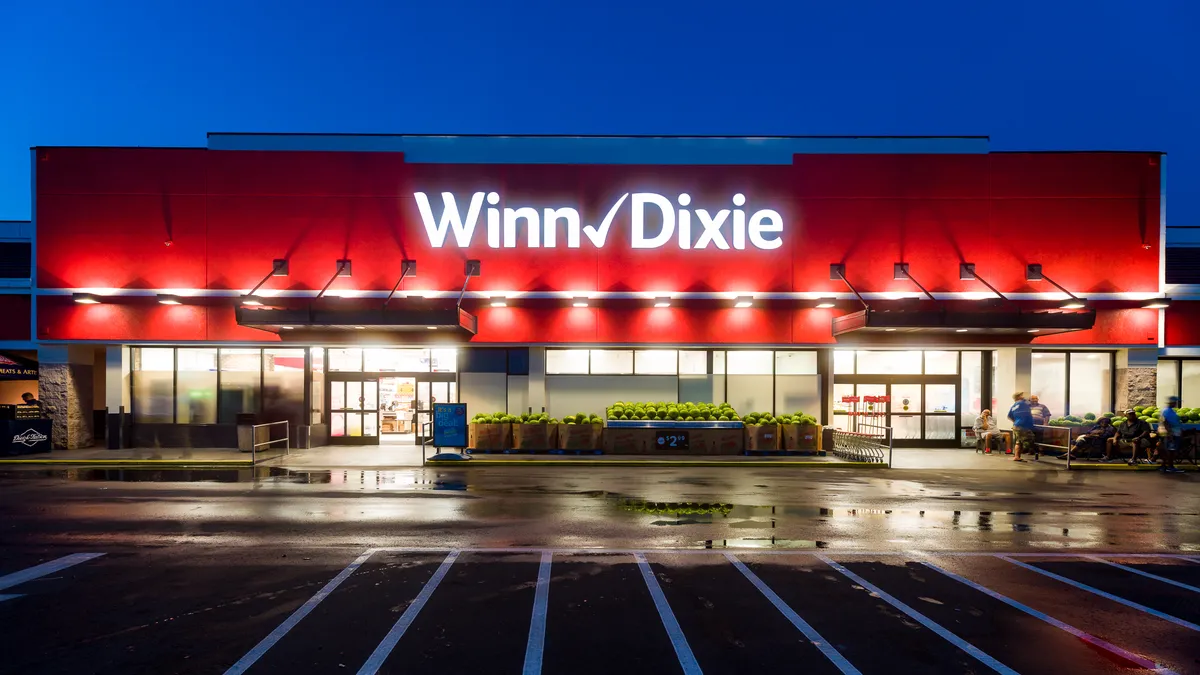Who wants to invest in meal kits these days?
With industry leader Blue Apron on the ropes and scores of smaller competitors struggling with profitability, the answer is: Not many people.
As recent reports have noted, meal kits, once the darling of venture capitalists and other investors, have fallen out of favor as companies struggle with high marketing costs, logistical inefficiencies and other economic challenges that have vexed the young industry.
Adam Zbar, co-founder and CEO of health-focused meal kit company Sun Basket, acknowledged how difficult it is to secure funding in an interview with Food Dive.
"This is the hardest I've ever had to work to get funding," Zbar said.
Nevertheless, Sun Basket did just secure $57.8 million in funding, headlined by a $42.8 million Series D investment from August Capital. That amount comes on top of $9.2 million invested by CPG giant Unilever last year. In 2017, Sun Basket enjoyed revenue growth of 280% and this month hit a run rate of $275 million in revenues, making it one of the fastest-growing meal kit companies in the U.S.
How has it achieved this growth? Unlike competitors HelloFresh and Plated, Sun Basket targets health-focused consumers — and in particular those who follow diets like Paleo, Mediterranean and gluten-free. The company offers meal plans that follow these regimens along with five others, and features organic, sustainable ingredients delivered in recyclable and compostable packaging.
As competition has heated up in the meal kit industry, establishing points of differentiation like these have become a key focus for players large and small. Some have forged celebrity endorsements, while others have introduced reusable packaging. Others stand out with their food offerings: Peachdish serves up Southern cuisine; Green Chef specializes in seasonal, organic-only ingredients; and Diet To Go targets consumers interested in losing weight. Some kit companies have whittled down prep time to as little as 15 minutes.
Despite these efforts, meal kit providers struggle to retain customers. According to purchase analytics firm Cardlytics, half of all meal kit consumers cancel their subscriptions after six months or less, and two-thirds do so within a year. Sun Basket, meanwhile, says its users are "stickier" than most meal kit consumers because the company focuses on unique dietary needs and preferences. Sun Basket also charges these users a premium for its ingredients, meaning margins are higher.
So while Sun Basket may have fewer overall users than Blue Apron or HelloFresh, it has more high-value users. Zbar said his customers spend between $150 and $200 per month on average.
Sun Basket hopes to eventually become a $1 billion business. But the fact remains that the company is currently not profitable — a fact Zbar credits to the same high marketing costs that have plagued its competitors.
"If we turned off marketing we'd be instantly profitable," he said.
Sun Basket has a path to profitability focused on scaling the business and lowering costs. With its most recent funding injection, the company plans to build two more distribution centers that will help it reach 98% of the U.S. — one on the East Coast and one in the Midwest — as well as build out its personalization tool, called the Healthy Personal Choice Platform. It's working to streamline its marketing costs, improve its data collection abilities, and forge partnerships with companies and health organizations.
A partnership with a grocer could also eventually be in the cards, Zbar noted. As meal kits have struggled, retailers like Albertsons, which recently bought industry pioneer Plated, and Kroger have started offering kits in store. This has put more pressure on financially challenged kit companies to deliver, but Zbar says he's not feeling the heat, and is in no rush to jump into a deal. Scaling his business has much more profit potential, he said, noting that Sun Basket has met with several large-scale retailers in recent months.
In fact, he said, retailers are more interested to learn about how Sun Basket mines customer data and personalizes its meal experiences for customers than in stocking its kits.
"They're trying to figure out our business model," said Zbar.
Meal kit companies like Sun Basket, he believes, have the technology, the customer service and the culinary know-how to neutralize the threat from grocers offering grab-and-go kits in stores.
Retailers, of course, would beg to differ, including Kroger, which has expanded its Prep + Pared meal kits to stores in California and Ohio. Albertsons' pickup of Plated also carries the promise of innovative in-store offerings. In a recent interview with Food Dive, Plated CEO Josh Hix said his company, which began rolling out kits in Albertsons stores last month, is taking a hard look at how to do meal kits in grocery aisles.
"Maybe [consumers] want faster meals because they're picking them up on the way home. Maybe it's longer format dinner party kits they want to use on a Friday night with friends coming over," he said. “We need to spend more time with customers and figure all that out so we're not just cloning what we've done online and hoping it's what [retail] consumers want."
There's also Amazon, which began testing its own meal kits last year. Zbar acknowledged Amazon's technology prowess and vast resources, but predicted it will focus on limited partnerships like its Martha & Marley Spoon offering.
"Economically, meal kits may not make sense for them," he said.
Zbar noted that Sun Basket is always refining its selections and listening to customer feedback. He said the meal kit model itself likely needs to evolve. He sees a future where Sun Basket becomes a broader health platform, with branded products like grab-and-go salads and meal plans geared towards treating specific conditions like hypertension.
There's a lot of work to be done, Zbar pointed out, at his company and throughout the industry. In the near future, he sees more consolidation and segmentation in meal kits, with a few top companies duking it out for supremacy.
"Nobody has yet gotten the meal kit right," he said.







